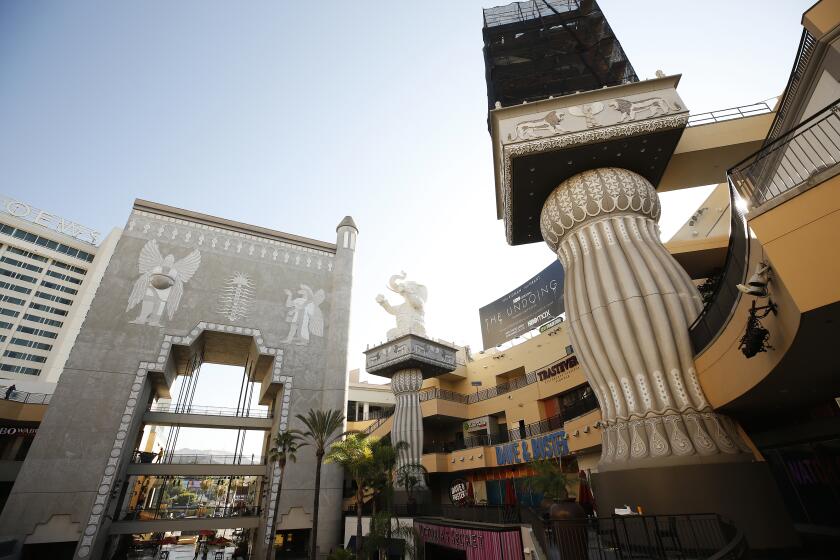The custom auto shop behind Hollywood’s most iconic cars may be closing
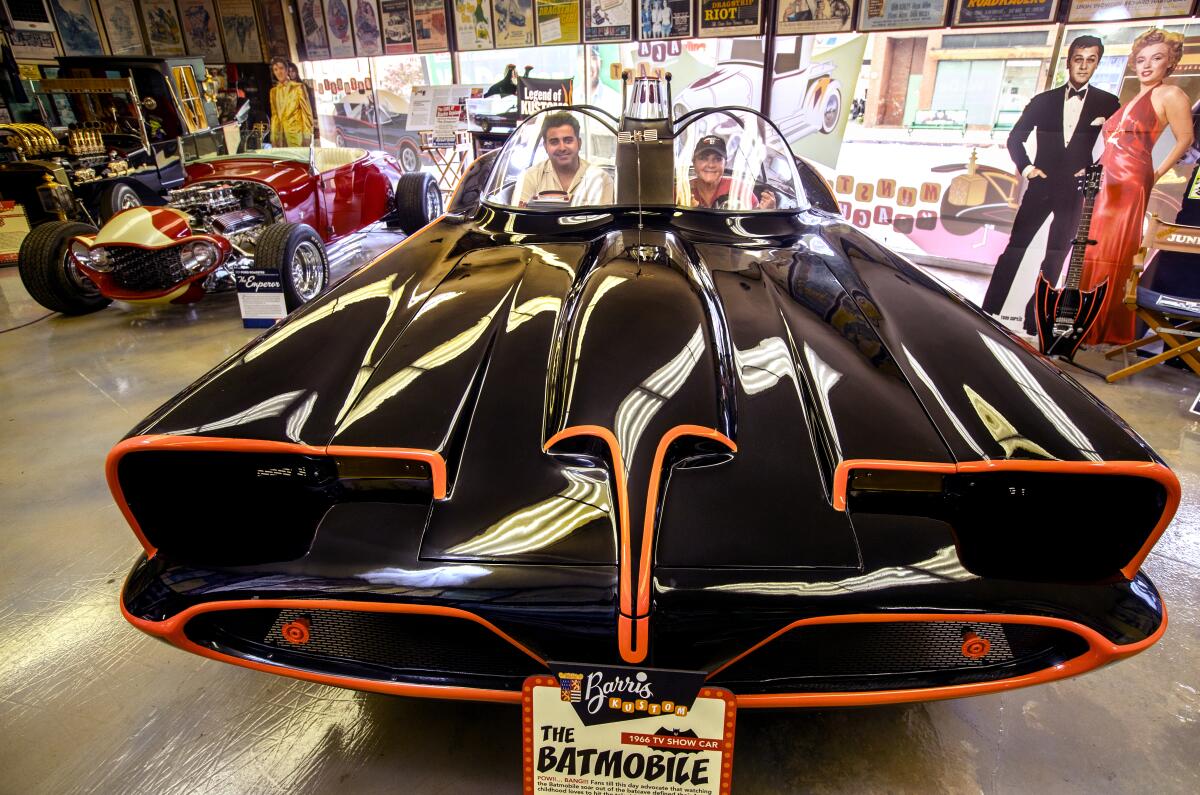
A foundation stone of Southern California car culture is about to be dislodged: The North Hollywood home of Barris Kustom Industries — birthplace of the Batmobile, the Munster Koach and a thousand other custom cars — is for sale.
The 10,000-square-foot commercial property, on an 18,000-square-foot corner lot, is offered at $3.995 million and is almost certainly destined for redevelopment.
The package includes the showroom that still houses a Batmobile; the garages where brothers George and Sam Barris did custom body work for celebrities including Elvis Presley, Elton John and Cassandra Peterson, a.k.a. Elvira, Mistress of the Dark; and even the spray booth where “kustom kolors” concocted by George were applied to cars driven by James Dean, John Wayne and ventriloquist Jeff Dunham, for whom Barris built a Bat Smart Car.
“George and Sam were the shop,” said Ken Gross, a hot rod historian and former Petersen Automotive Museum executive director. “That’s who you went to. They were very responsible for the whole custom car scene.”
In the early 1960s, the Barris brothers had already blown the car world’s mind with a customized mass of Detroit steel that came to be known as the Hirohata Merc — a 1951 Club Coupe that, in the parlance of the day, they nosed, decked, shaved, chopped and frenched until it was unlike any car ever built.
(They used sombrero hubcaps off a Cadillac, fused three Ford grilles into one to give the Merc its front teeth, had the pin-striper Von Dutch paint the dashboard, and to the chromed front bumper added dagmars, the bosomy protrusions named after the busty TV personality of that name.)
They had turned a 1929 Model A delivery truck into a wicked beast called Ala Kart that won back-to-back “America’s Most Beautiful Roadster” trophies at the 1958 and 1959 Grand National Roadster Shows. They won again, the following year, for their design of a drag racer known as the Emperor.
But times were changing. The hot rod craze was fading. Sam, said by many to be the design genius of the pair, left the business. When the Barris workshop in Lynwood burned to the ground, George’s new wife, Shirley, found a property on Riverside Drive in North Hollywood, halfway between Universal Studios and Warner Bros., and proclaimed it Barris Kustom City.
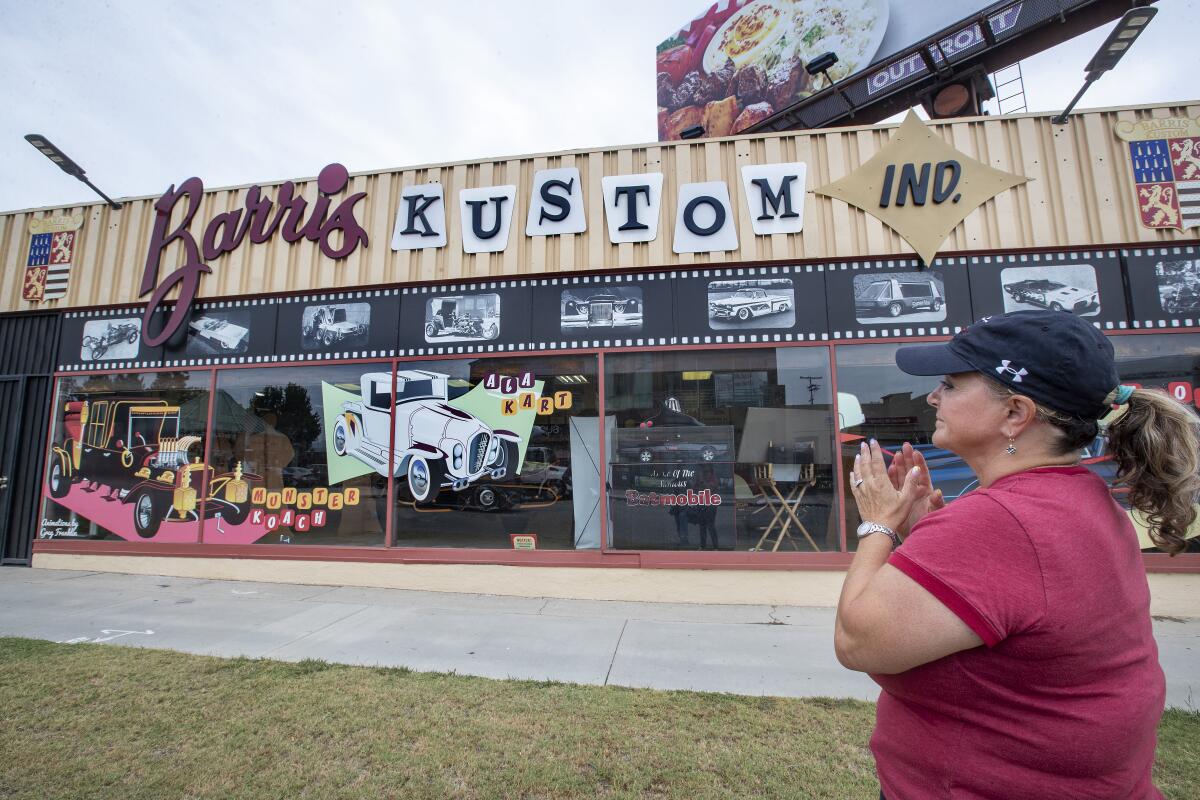
From that base Barris would become the self-proclaimed “King of the Kustomizers,” employing the best of the best of California automotive artisans to turn Detroit dross into Hollywood gold. Many of his most important projects would be for movies and TV shows.
On a rushed three-week build, he and the team turned a Ford Futura concept car — bought by George for $1 — into the Batmobile. (Barris sold the car decades later at auction for $4.2 million.)
Later he forged three Model T bodies into the Munster Koach, turned a gold-plated coffin into the Munsters’ Drag-U-La, and built starring-role vehicles for “The Beverly Hillbillies” and “My Mother the Car.”
Fame had already found Barris. He and his contemporary car nut colleague Ed “Big Daddy” Roth were the subjects of journalist Tom Wolfe’s landmark Esquire story “The Kandy-Kolored Tangerine-Flake Streamline Baby.”
Early support from Robert E. Petersen — publisher of car magazines such as Hot Rod, Car Craft and Motor Trend — became a friendship. Barris cars graced many a cover.
Fortune followed. Barris made deals with Revell and AMT to turn his four-wheeled designs into model car kits for kids. Barris Kustom Industries designed or built custom motorcycles, bicycles and electric guitars.
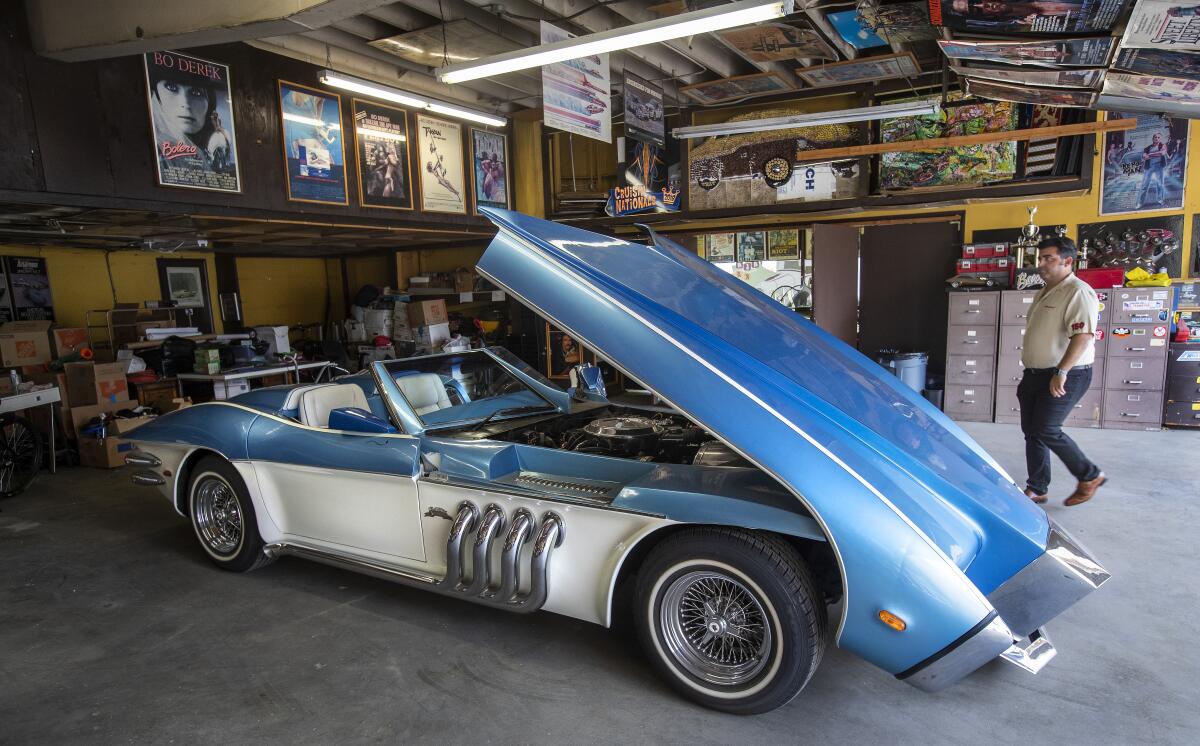
No concept was too wild.
For Vox, known for its musical instruments and amplifiers, Barris built a hot rod shaped like two electric guitars that also functioned as a massive rolling amplifier.
The Bathtub Buggy, built for an exposition in Osaka, Japan, featured a fully functioning tub, sink and vanity, with running water and solid brass taps.
The paint scheme for the Corvette-based Cosma Ray was composed of “essence of platinum pearl and tangerine metalflake blended into a tinted peach pearlescence over a white pearl underbase,” per Barris’ description.
A viral marketing maven before there was social media, Barris understood the value of the celebrity grip-and-grin photograph. With his wife, Shirley, behind the camera, the tireless self-promoter was photographed with everyone who was anyone in show business.
“He was the go-to person for Hollywood stars,” said Leslie Kendall, chief historian at the Petersen museum. “By virtue of his creativity and his ability to market himself, he led the pack.”
Many of the photos were taken at the North Hollywood location. The door behind John and Yoko? That’s the front door on Riverside. The oil stain on the wall behind the Beach Boys? The wall is still there, and so is the stain. If the photo is in color, Barris’ jacket, hat or shoes — or all three — are in his signature sparkle gold color.
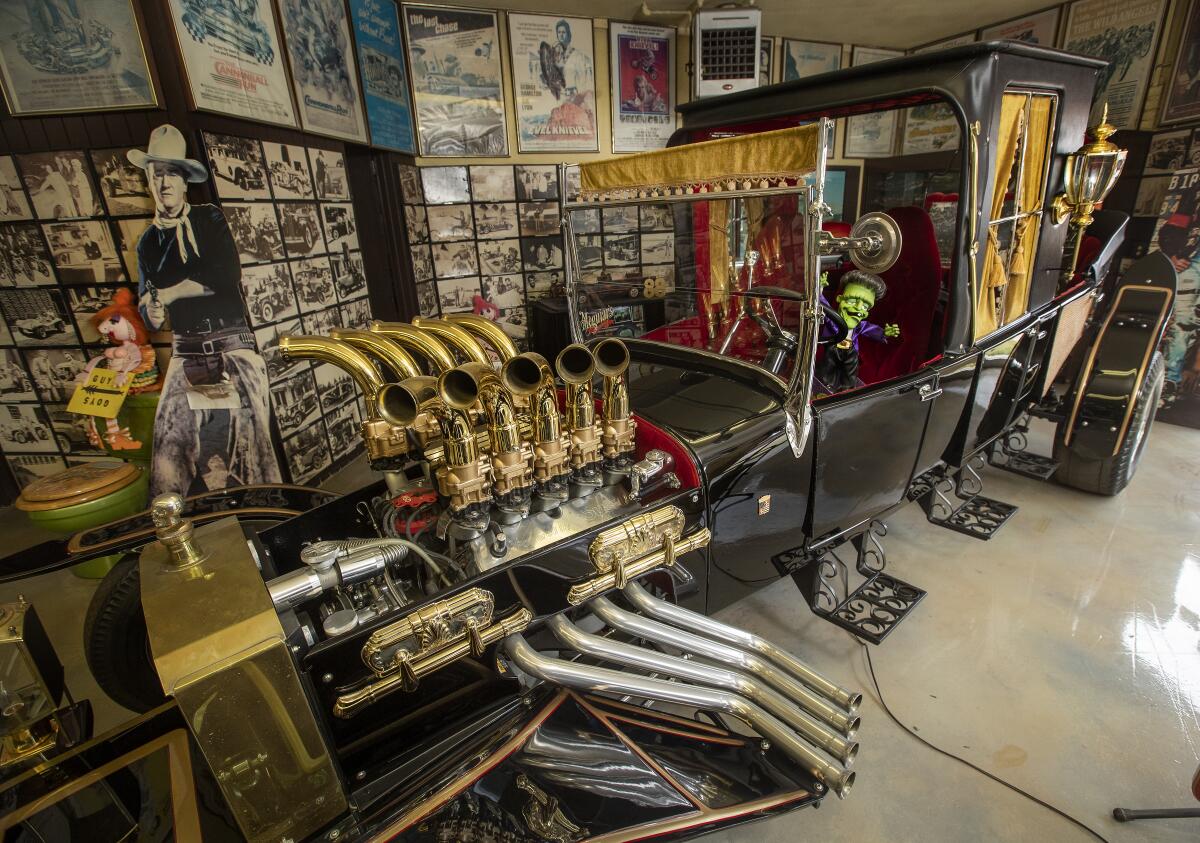
When Shirley died in 2001, daughter Joji Barris-Paster assumed much of the day-to-day management of the company. (Her brother Brett and son Jared are also involved.) George died in 2015, just shy of his 90th birthday and only months after his Hirohata Merc took top prize in the Mercury Customs category at the Pebble Beach Concours D’Elegance — with second prize going to a Mercury designed by his late brother.
Wearing sparkle gold sneakers while she showed visitors around the property, Barris-Paster said the historically significant contents of her father’s shop will be boxed up and moved to a location in the Oxnard-Ventura area, where ultimately it will be a collection open to the public.
“It has to be, and we want it to be, because he would have wanted it that way,” she said.
The complex is erasing the Babylon-themed homage to D.W. Griffith, director of the racist film “The Birth of a Nation.”
For now, the building is on the block. Realtors Jason Froehlich and Scott Moore of Douglas Elliman Real Estate say they’ve had numerous off-market offers on the property. Because it’s such a piece of history, Froehlich said, they felt it best to have the whole world take a look and have a chance to bid.
Beverly Hills car collector and passionate hot rod enthusiast Bruce Meyer noted that Barris Kustom City is the last family-owned workshop from the golden days of the handmade custom car. (Others, such as Blair’s Speed Shop in Pasadena and Moon Eyes in Santa Fe Springs, are extant but not operated by families of their founders.)
He hoped the family would preserve the legacy.
“This is an American art form, like jazz,” Meyer said. “It needs to be recognized.”
More to Read
Inside the business of entertainment
The Wide Shot brings you news, analysis and insights on everything from streaming wars to production — and what it all means for the future.
You may occasionally receive promotional content from the Los Angeles Times.
